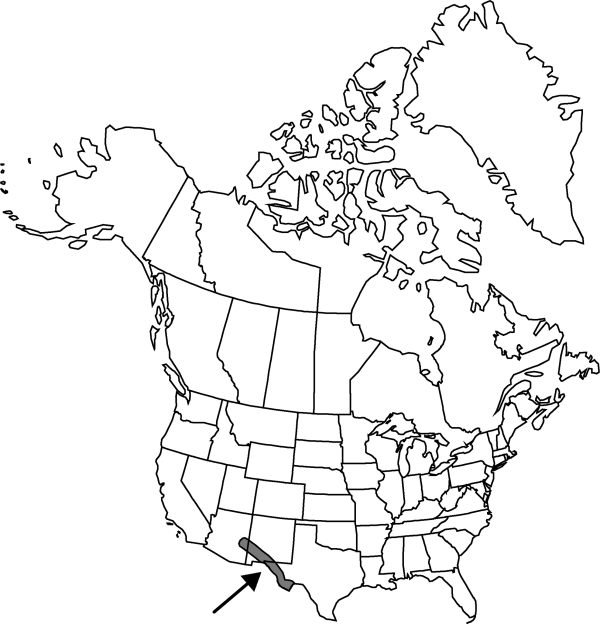Atriplex acanthocarpa var. acanthocarpa
Treatment appears in FNA Volume 4. Treatment on page 370.
Revision as of 23:18, 27 May 2020 by imported>Volume Importer
Leaves: petioles mainly 5–12 mm; blade flat or folded, ovate to rhombic-ovate, elliptic, or spatulate, mainly 15–40(–50) 7–20 mm, base narrowly cuneate, margin irregularly repand-dentate, sinuate-dentate, undulate-crisped, with sinuses rounded, or less commonly entire. Fruiting bracteoles ascending to erect when mature, mainly 9–15 mm thick, on stipes mainly 3–8 mm when mature, body globose, 3.5–5 mm thick, covered with numerous, radiating, cylindric, conic, or flattened, distally toothed or branched processes mainly 2.5–5 mm.
Habitat: Alkaline soils, used for windbreaks, roadside cover and ornamentals, mainly occurring along the drainages of the Gila and Rio Grande rivers
Elevation: 100-800 m
Distribution

Ariz., N.Mex., Tex., Mexico (Chihuahua, Coahuila).
Discussion
Selected References
None.
Lower Taxa
None.
... more about "Atriplex acanthocarpa var. acanthocarpa"